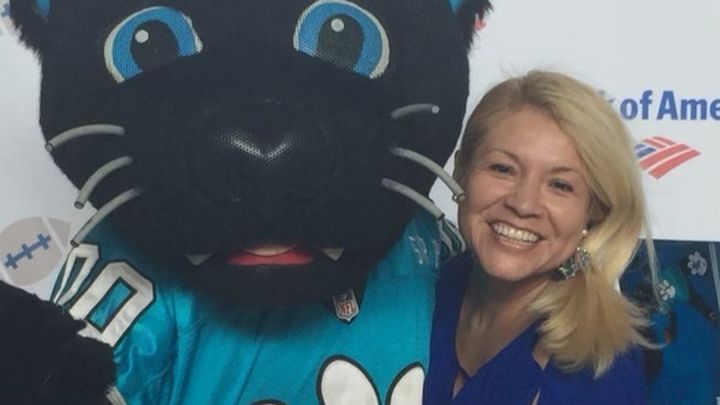
Monica Kauppila's Mysterious Illness
Hi everyone.
It feels surreal to be writing this. My mother, Monica, has never faced a health challenge greater than the common cold all my life. She's one of the most hardworking, compassionate, and funny people you'll ever meet. Monica maintained a healthy lifestyle by eating well and walking 2-4 miles each day to stay fit and unwind after long workdays. Nevertheless, she's now in an ongoing battle against a mysterious illness that has no diagnosis. We're reaching out for your support to help cover her medical expenses that she's endured during her prolonged stay in the Neuro ICU.
In April 2023, Monica began experiencing numbness, loss of taste, and tingling on the right side of her mouth. Shortly after, she started feeling dizzy when standing from the bed or a chair. Initially, we suspected it might be vertigo or a similar issue. So she decided to seek medical attention. After numerous doctor's appointments, no one could pinpoint the cause of her symptoms. She endured intense head pressure, which she described as an excruciating internal pressure distinct from a typical migraine or headache.
Despite the persistence of her symptoms she had a head MRI done without contrast, which revealed no abnormalities. After the MRI the physician recommended an MRA to explore potential vascular problems, but it, too, showed no abnormalities. With Monica's worsening condition, it brought worsening head pressure, double vision, and frequent vomiting, making it challenging for her to keep any food down. She experienced substantial weight loss and eventually needed a walker for mobility.
Finally, an ophthalmologist diagnosed her with "6th Nerve Palsy". We noticed this originally when we saw misalignment in her right eye. This was causing her double vision and facial drooping on the right side. After weeks of relentless vomiting, on July 20th, 2023, doctors wanted her admitted to the hospital.
A contrast-enhanced MRI was performed, revealing the presence of lesions on her brain stem. She then underwent several weeks of extensive testing, which included blood work, spinal taps, CT scans, and multiple MRIs. The medical team diligently searched for bacterial and viral causes of her condition. Despite all the testing, still no answers were found. Finally, on August 1st, 2023, a brain biopsy was performed to obtain a sample of the lesion for analysis. At this point, doctors suspected the possibility of a rare mosquito-borne virus, such as Venezuelan Eastern Equine Encephalitis. They had ruled out several other conditions, including Multiple Sclerosis, Lupus, West Nile, Zika, Meningitis, Lyme disease, Myasthenia Gravis, Guillain-Barre syndrome, and many others. However, the biopsy results did not reveal lymphoma or any other detectable cause.
The week following the biopsy, she was unable to stay awake, raising further concerns. As she struggled to stay awake, she also found it impossible to eat or perform basic tasks independently. Given her inability to remain awake long enough to eat, a feeding tube was inserted through her nose to provide nourishment. Shortly after, doctors identified hydrocephalus in her brain's ventricles, which was responsible for her persistent lethargy. To address this critical issue, she required immediate intubation and the insertion of an EVD (External Ventricular Drain) to alleviate the excess brain fluid accumulating and ensuring her survival.
Soon after, we started researching potential treatments that could aid her recovery. They came across IVIg treatments, which replace immunoglobulins in the blood to boost the immune system and potentially combat whatever was attacking her central nervous system. In addition to IVIg treatment, she was given steroids to reduce brain swelling and possibly shrink her lesions. Given that steroids had shown some promise in the past, there was hope that this high-dose regimen would yield positive results.
Typically, IVIg treatment would show maximum results within three weeks. However, three weeks passed without any improvement, leaving us and the team of neurologists deeply frustrated by the lack of progress. Fortunately, at this point she was extubated shortly after the diagnosis of hydrocephalus. Nevertheless, despite the EVD drain, she remained overwhelmingly fatigued, only able to talk for 60 seconds or less. In an effort to gain deeper insights, her medical team decided to conduct a “long MRI” scan of her brain and spine. During this procedure, her EVD drain became clogged, leading to dangerously high internal pressure, which could have had dire consequences. Luckily, her vigilant nurses and doctors intervened promptly, saving her life. Unfortunately, she had to be intubated once again.
After enduring two weeks of intubation, she was no longer able to breathe unassisted. A tracheotomy was performed to allow for long-term ventilator support without the need for an oral tube. Additionally, she had a feeding tube inserted into her stomach to provide liquid nutrition over an extended period.
Presently, the family is in the process of transferring her to Duke University Medical Center in the hope of obtaining a definitive diagnosis through another biopsy. In her current condition, she relies on an EVD drain, a feeding tube, and a respirator. She is unable to communicate verbally or move her limbs, and her left side remains completely paralyzed.
We are starting this go-fund-me to help take care of her on-going medical expenses. Thank you all so much.
Organizer and beneficiary
Craig Kauppila
Beneficiary